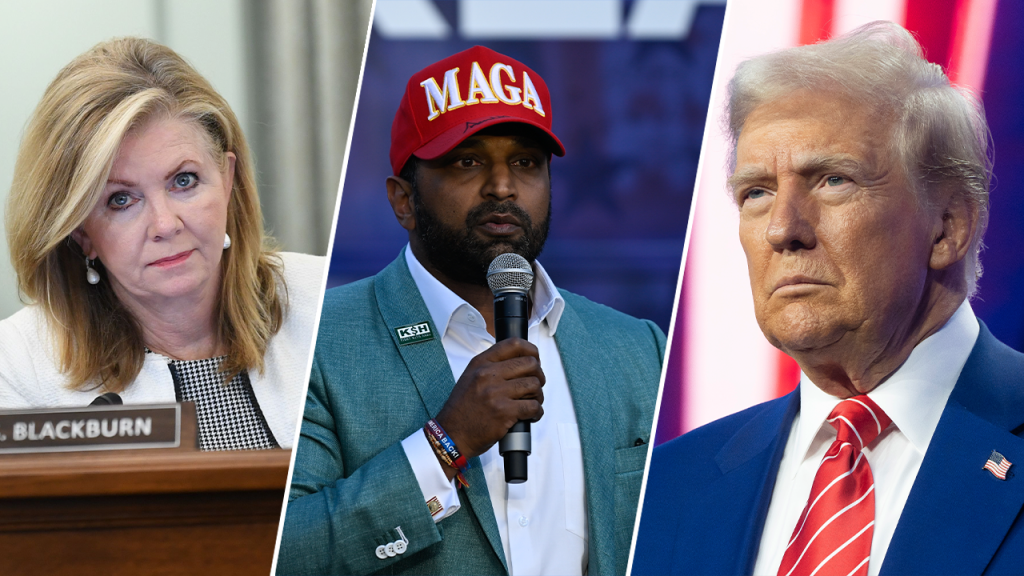The New Year’s Eve attack on Bourbon Street in New Orleans, which claimed the lives of 15 people and injured dozens more, has sparked controversy and criticism directed at the FBI’s initial response. Shamsud-Din Jabbar, the suspect, drove a truck into the celebrating crowds and later opened fire on police before being killed. While early reports from the FBI’s New Orleans field office dismissed any connection to terrorism, subsequent investigations revealed the presence of an ISIS flag in Jabbar’s vehicle, prompting the FBI to reclassify the incident as an act of terror. This initial mischaracterization ignited a firestorm of criticism, particularly from allies of former President Donald Trump.
The controversy centers around the FBI’s seemingly delayed recognition of the attack’s terrorist nature. While New Orleans Mayor LaToya Cantrell immediately labeled the attack as terrorism during the initial press conference, the FBI’s Assistant Special Agent in Charge, Alethea Duncan, stated that it was not a terrorist event. This discrepancy, followed by the later discovery of the ISIS flag and the FBI’s revised classification of the attack, fueled accusations of incompetence and a failure of the agency’s core mission. Critics, including Senator Marsha Blackburn, a staunch supporter of Trump’s pick for FBI Director, Kash Patel, pointed to the FBI’s alleged late arrival at the suspect’s residence in Texas – after media personnel were already present – as further evidence of the agency’s shortcomings.
The attack has become politicized, with Trump blaming President Biden’s “Open Border’s Policy” for the rise in violent crime and radical Islamic terrorism in the United States. He characterized Biden as the “WORST PRESIDENT IN THE HISTORY OF AMERICA,” attributing the attack to the administration’s policies. Conversely, President Biden expressed his condolences for the victims and affirmed the resilience of New Orleans, emphasizing that the city’s spirit would not be defeated by this act of violence. The contrasting responses reflect the deep political divisions within the country and the tendency to politicize tragic events.
The calls for Kash Patel’s confirmation as FBI Director have intensified in the wake of the attack. Trump allies argue that Patel’s leadership is crucial to addressing what they perceive as a failing FBI. They believe that Patel’s “fearless” approach is needed to combat terrorism effectively and restore confidence in the agency. This renewed push for Patel’s appointment highlights the ongoing debate surrounding the FBI’s leadership and its ability to effectively counter terrorism threats. It also underscores the influence of political considerations in the selection of leadership for crucial national security positions.
The FBI’s response to the criticism has been limited to reiterating their revised classification of the attack as an act of terrorism. They have not directly addressed the initial mischaracterization nor the concerns regarding their alleged delayed response in Texas. This lack of a detailed explanation has only further fueled the criticism and calls for accountability. The incident raises questions about internal communication and assessment protocols within the FBI and the potential need for improved processes to ensure accurate and timely responses to such events.
The New Orleans attack serves as a stark reminder of the ongoing threat of terrorism and the critical role of law enforcement agencies in preventing and responding to such attacks. The controversy surrounding the FBI’s initial response highlights the importance of accurate and timely information sharing, effective inter-agency communication, and the need for strong leadership within these agencies. The incident also underscores the delicate balance between national security concerns and individual freedoms, a balance that continues to be debated and refined in the face of evolving threats. The calls for greater accountability and the renewed focus on leadership within the FBI reflect the public’s demand for effective and reliable protection against acts of terror.

